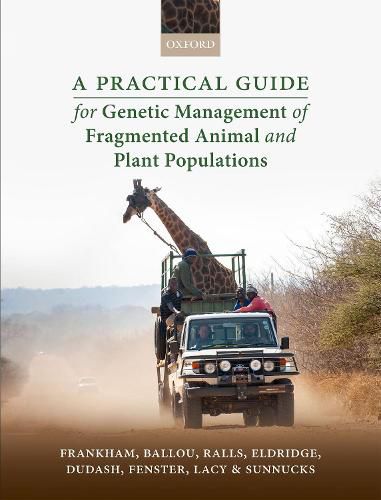Readings Newsletter
Become a Readings Member to make your shopping experience even easier.
Sign in or sign up for free!
You’re not far away from qualifying for FREE standard shipping within Australia
You’ve qualified for FREE standard shipping within Australia
The cart is loading…






The habitats of most species have been fragmented by human actions, isolating small populations that consequently develop genetic problems. Millions of small, isolated, fragmented populations are likely suffering from inbreeding depression and loss of genetic diversity, greatly increasing their risk of extinction. Crossing between populations is required to reverse these effects, but managers rarely do so. A key reason for such inaction is that managers are often advised to manage populations in isolation whenever molecular genetic methods indicate genetic differences among them. Following this advice will often doom small populations to extinction when the habitat fragmentation and genetic differences were caused by human activities. A paradigm shift is required whereby evidence of genetic differentiation among populations is a trigger to ask whether any populations are suffering genetic problems, and if so, whether they can be rescued by augmenting gene flow. Consequently, there is now an urgent need for an authoritative practical guide to facilitate this paradigm shift in genetic management of fragmented populations.
$9.00 standard shipping within Australia
FREE standard shipping within Australia for orders over $100.00
Express & International shipping calculated at checkout
The habitats of most species have been fragmented by human actions, isolating small populations that consequently develop genetic problems. Millions of small, isolated, fragmented populations are likely suffering from inbreeding depression and loss of genetic diversity, greatly increasing their risk of extinction. Crossing between populations is required to reverse these effects, but managers rarely do so. A key reason for such inaction is that managers are often advised to manage populations in isolation whenever molecular genetic methods indicate genetic differences among them. Following this advice will often doom small populations to extinction when the habitat fragmentation and genetic differences were caused by human activities. A paradigm shift is required whereby evidence of genetic differentiation among populations is a trigger to ask whether any populations are suffering genetic problems, and if so, whether they can be rescued by augmenting gene flow. Consequently, there is now an urgent need for an authoritative practical guide to facilitate this paradigm shift in genetic management of fragmented populations.